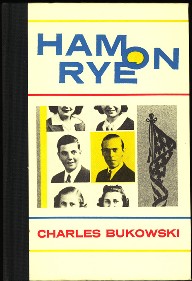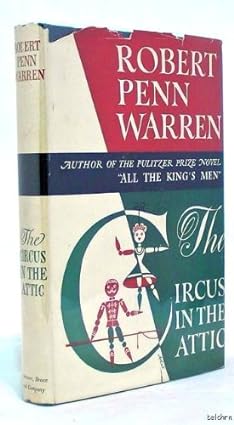
Robert Penn Warren was an American poet, novelist, and literary critic and was one of the founders of New Criticism. He was also a charter member of the Fellowship of Southern Writers. He founded the literary journal The Southern Review with Cleanth Brooks in 1935. He received the 1947 Pulitzer Prize for the Novel for All the King's Men (1946) and the Pulitzer Prize for Poetry in 1958 and 1979. He is the only person to have won Pulitzer Prizes for both fiction and poetry.
"The Swimmer" is a short story by American author John Cheever. It was originally published in The New Yorker on July 18, 1964, and later in the short-fiction collections The Brigadier and the Golf Widow (1964) and The Stories of John Cheever (1978). Considered one of the author's most outstanding works, "The Swimmer" has received exhaustive analysis from critics and biographers.

Thomas Louis Berger was an American novelist. Probably best known for his picaresque novel Little Big Man and the subsequent film by Arthur Penn, Berger explored and manipulated many genres of fiction throughout his career, including the crime novel, the hard-boiled detective story, science fiction, the utopian novel, plus re-workings of classical mythology, Arthurian legend, and the survival adventure.

Blackberry winter is a colloquial expression used in south, midwest North America; as well as in Europe, Sinosphere Vietnam and East Asia, referring to a cold snap that often occurs in late spring when the blackberries are in bloom. Other colloquial names for spring cold snaps include "dogwood winter," "whippoorwill winter," "locust winter," and "redbud winter." The different names are based on what is blooming in particular regions during the typical spring cold snaps. Another colloquialism for these spring cold snaps is "linsey-woolsey britches winter," referring to a type of winter long underwear which could be put away after the last cold snap. The blackberry winter term may have arisen to describe the belief that a spring cold snap helps the blackberry canes to start growing.

Ham on Rye is a 1982 semi-autobiographical novel by American author and poet Charles Bukowski. Written in the first person, the novel follows Henry Chinaski, Bukowski's thinly veiled alter ego, during his early years. Written in Bukowski's characteristically straightforward prose, the novel tells of his coming-of-age in Los Angeles during the Great Depression.
“Personal Notes of an Infantryman” is an uncollected work of short fiction by J. D. Salinger which appeared in the December 12, 1942 issue of Collier's.
"The Use of Force" is a work of short fiction by the American author William Carlos Williams. It was first published in his short story collection Life Along the Passaic River (1938); it is also available in The Doctor Stories (1984), a collection of Williams' fiction.

All the Sad Young Men is a collection of short fiction by F. Scott Fitzgerald. The stories originally appeared independently in popular literary journals and were first collected in 1926 by Charles Scribner’s Sons.
"A Diamond Guitar" is a short story by Truman Capote, first published in Harper's Bazaar in 1950; it is noted as one of his better quality early short stories. The title refers to the prize possession of the younger man, a rhinestone-studded guitar; the guitar serves as the key image of the story.
The Night of Nights is a 1939 black-and-white drama film written by Donald Ogden Stewart and directed by Lewis Milestone for Paramount Pictures that starred Pat O'Brien, Olympe Bradna, and Roland Young.
James Ashbrook Perkins is Professor Emeritus of English and Public Relations at Westminster College, New Wilmington, Pennsylvania, where he became a faculty member in 1973 and was department chair from 2000 to 2005.

Some People, Places and Things That Will Not Appear In My Next Novel is a collection of short fiction by John Cheever, published by Harper and Bros. in 1961. These nine short stories first appeared individually in The New Yorker or Esquire magazines. These works are included in the collection The Stories of John Cheever (1978), published by Alfred A. Knopf.
"The Scarlet Moving Van" is a short story by John Cheever which first appeared in The New Yorker on March 21, 1959. The work was included in the short fiction collection Some People, Places, and Things That Will Not Appear in My Next Novel (1961), published by Harper and Brothers.
"The Brothers" is a short story by John Cheever which first appeared in The Yale Review in June 1937. The work was included in the short fiction collection The Way Some People Live (1943), published by Random House.
"A Night in June" is a work of short fiction by William Carlos Williams, first published in Blast. The story appeared in the 1938 collection Life Along the Passaic River, New Dimensions publishers.
The Girl With a Pimply Face is a work of short fiction by William Carlos Williams, first published in the literary journal Blast (1934). The story appeared in the 1938 collection Life Along the Passaic River issued by New Directions Publishers.
“The Angel in the Alcove” is a work of short fiction by Tennessee Williams. It first appeared in the collection One Arm and Other Stories, published by New Directions in 1948.
“The White Quail” is a work of short fiction by John Steinbeck originally appearing in The North American Review, March 1935. The story was first collected in The Long Valley (1938) published by Viking Press.
“The Raid” is a work of short fiction by John Steinbeck originally published in The North American Review, October 1934. The story was first collected in The Long Valley (1938) by Viking Press.

The Circus in the Attic and Other Stories is the only volume of short fiction by poet and novelist Robert Penn Warren. The collection, comprising two novellas and twelve short stories, was first published in 1947 by Harcourt Brace & Company.